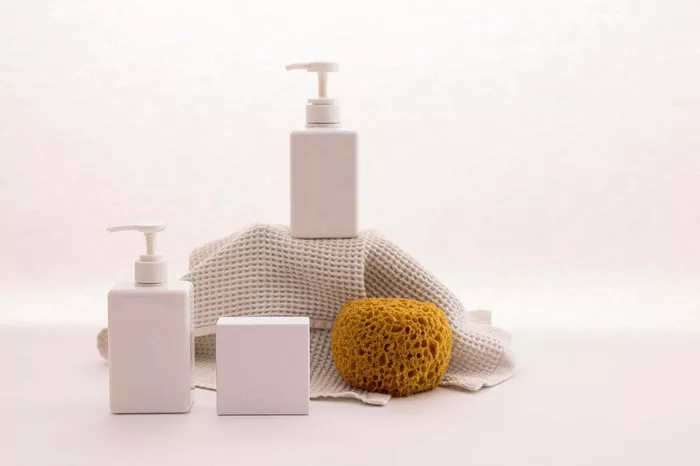Choosing a shampoo without harmful chemicals is important for healthy hair, a balanced scalp, and overall well-being. Many shampoos contain ingredients that may cause irritation, dryness, or long-term health concerns. This article explains how to identify safe shampoos, lists harmful chemicals to avoid, recommends trusted brands, and shares tips for transitioning to natural hair care.
Why Avoid Harmful Chemicals in Shampoo?
Your scalp absorbs ingredients from shampoos, which can enter your bloodstream. Over time, harsh chemicals may damage hair, irritate skin, or disrupt hormones. Children, pregnant individuals, and those with sensitive skin need extra protection. Natural shampoos avoid these risks while cleaning hair gently.
Common Harmful Chemicals in Shampoos
Learn to read ingredient labels. Here are chemicals to avoid:
Sulfates (SLS/SLES)
-
- Found in: Most foaming shampoos.
- Risks: Strip natural oils, causing dryness and irritation. May worsen eczema.
- Names: Sodium Lauryl Sulfate (SLS), Sodium Laureth Sulfate (SLES).
Parabens
-
- Found in: Preservatives in shampoos.
- Risks: Mimic estrogen, linked to hormonal imbalances.
- Names: Methylparaben, Propylparaben.
Phthalates
-
- Found in: Synthetic fragrances.
- Risks: May affect reproductive health. Often hidden as “fragrance.”
Formaldehyde
-
- Found in: Preservatives or released by other chemicals.
- Risks: Carcinogenic. Causes allergic reactions.
- Names: DMDM Hydantoin, Quaternium-15.
Synthetic Fragrances
-
- Found in: Most scented shampoos.
- Risks: Irritate skin, trigger headaches. Ingredients are rarely disclosed.
Silicones
-
- Found in: “Smoothing” shampoos.
- Risks: Coat hair, causing buildup and dullness. Not biodegradable.
- Names: Dimethicone, Cyclomethicone.
Alcohol (Drying Types)
-
- Found in: Clarifying shampoos.
- Risks: Dries scalp and hair. Avoid ethanol, propanol.
What to Look for in a Safe Shampoo
Safe shampoos use natural cleansers and preservatives. Check for:
Certifications
-
- USDA Organic: 95%+ organic ingredients.
- EWG Verified: Free from EWG’s “concern” chemicals.
- Leaping Bunny: Cruelty-free.
Natural Ingredients
-
- Cleansers: Coconut oil-based (e.g., Cocamidopropyl Betaine).
- Moisturizers: Aloe vera, shea butter, argan oil.
- Preservatives: Vitamin E (Tocopherol), grapefruit seed extract.
Transparent Labeling
-
- Brands should list all ingredients. Avoid “fragrance” unless specified as natural.
Recommended Shampoos Without Harmful Chemicals
Here are trusted brands across budgets and hair types:
Acure Mega Moisture Shampoo
-
- Key Features: Sulfate-free, vegan, packed with argan oil and aloe.
- Best For: Dry, curly hair.
ATTITUDE Super Leaves Shampoo
-
- Key Features: EWG Verified, hypoallergenic, oat extract.
- Best For: Sensitive scalps.
SheaMoisture Coconut & Hibiscus Shampoo
-
- Key Features: Fair-trade shea butter, no silicones.
- Best For: Thick, frizzy hair.
Hello Bello Shampoo & Body Wash
-
- Key Features: Tear-free, gentle for babies.
- Best For: Children or delicate skin.
Plaine Products Shampoo
-
- Key Features: Zero-waste, aluminum bottle.
- Best For: Eco-conscious users.
Maple Holistics Sage Shampoo
-
- Key Features: DHT blockers for hair growth, rosemary oil.
- Best For: Thinning hair.
Benefits of Switching to Chemical-Free Shampoo
Healthier Scalp: Reduced itching, dandruff, and redness.
Stronger Hair: Less breakage and split ends.
Eco-Friendly: Biodegradable ingredients protect waterways.
Safe for All Ages: Gentle enough for kids and sensitive skin.
How to Transition to Natural Shampoo
Gradual Change: Alternate between old and new shampoos for 2 weeks.
Clarify First: Use apple cider vinegar to remove silicone buildup.
Adjust Expectations: Natural shampoos lather less but clean effectively.
Moisturize: Follow with a natural conditioner (e.g., jojoba oil).
DIY Chemical-Free Shampoo Recipes
Basic Castile Shampoo
Mix ¼ cup liquid Castile soap + ½ cup water + 1 tsp almond oil. Add lavender oil for scent.
Apple Cider Vinegar Rinse
Combine 1 tbsp ACV + 1 cup water. Use after shampooing to boost shine.
Oatmeal Soothing Shampoo
Blend ½ cup oats + 1 cup water. Strain, add 2 tbsp honey. Massage into scalp.
Conclusion
Choosing a shampoo without harmful chemicals protects your health and the planet. Look for certifications, avoid mystery “fragrance,” and prioritize natural oils. Brands like Acure, ATTITUDE, and SheaMoisture offer safe, effective options. Transition slowly, and consider DIY recipes for full control. Healthy hair starts with mindful choices!
Related topics:
8 Best Shampoos for Frizzy and Damaged Hair
HAIRtamin Shampoo: A Natural Solution for Healthier, Luscious Hair
5 Best Shea Moisture Shampoos in 2025


